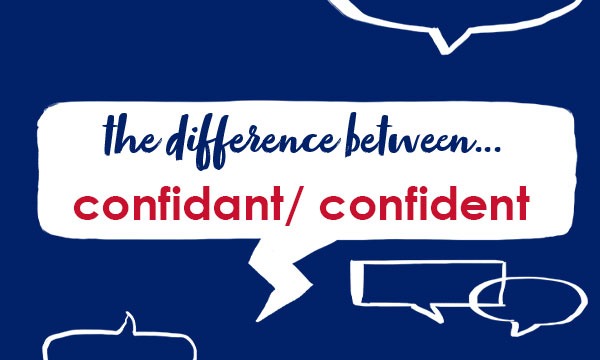This week we are looking at two words which may be confused by learners of English: confidant and confident.
confidant
function playAudio(url) { new Audio(url).play(); }
Confidant /ˈkɒnfɪdænt/ is a countable noun.
A confidant is a person who you discuss your private problems and worries with. You use the spelling confidante when the person is a woman.
…Colonel Hawkins, a friend and confidant of President Woodrow Wilson.
She became her father’s only confidante.
confident
function playAudio(url) { new Audio(url).play(); }
Confident /ˈkɒnfɪdənt/ is an adjective.
If you are confident about something, you are certain that it will happen in the way you want.
He was confident that the problem with the engine could be fixed.
I feel confident about the future of British music.
People who are confident are sure of their own abilities.
… a witty, young and confident lawyer.
His manner is more confident these days.
Find out more in our English Usage article.
This blogpost is based on Collins COBUILD English Usage, written for learners of English. For more examples of English usage points, please visit: https://grammar.collinsdictionary.com/english-usage.
All opinions expressed on this blog are those of the individual writers, and do not necessarily reflect the opinions or policies of Collins, or its parent company, HarperCollins.



